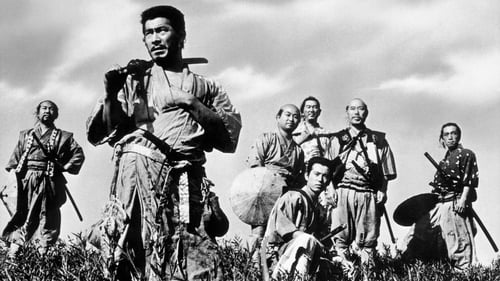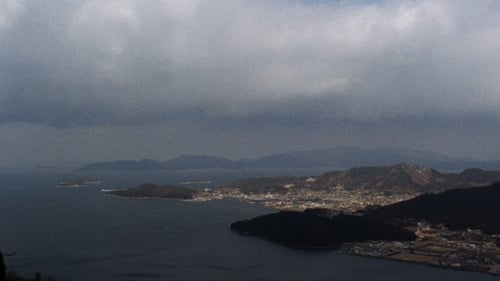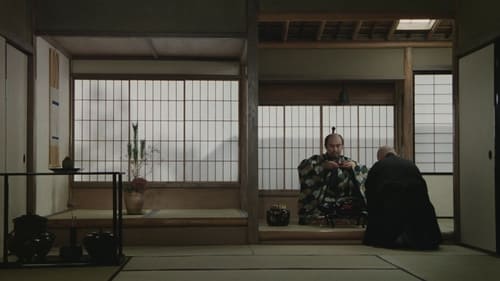Donald Richie
出生 : 1924-04-17, Lima, Ohio, USA
死亡 : 2013-02-19
略歴
Donald Richie was an American-born author who wrote about the Japanese people, the culture of Japan, and especially Japanese cinema. Although he considered himself primarily a film historian, Richie also directed a number of experimental films. (Wikipedia)

Self
A 2007 documentary examining the collaboration between Teshigahara and novelist Kobo Abe, featuring interviews with film scholars Donald Richie and Tadao Sato, film programmer Richard Peña, set designer Arata Isozaki, producer Noriko Nomura, and screenwriter John Nathan

Himself
Using rare archival footage and interviews with noted artists, philosophers, and scholars such as Huston Smith, this film examines the life and teachings of D.T. Suzuki, the celebrated Japanese religious philosopher who first brought Zen Buddhism to the West. This film explores Suzuki's travels in America, his teachings on satori (enlightenment) and other Buddhist concepts, his influence on Western art and psychology, and more.

Self
Seven Samurai: Origins and Influences, a documentary looking at the samurai traditions and films that helped shape Kurosawa's masterpiece

Himself
A documentary on sixties counterculture in Japan featuring Donald Richie, Tadanori Yokoo, Masao Adachi, Koji Wakamatsu, Toshio Matsumoto and Akaji Maro among others.

Self
Documentary on film maker Akira Kurosawa

Book
In 1971, author and film scholar Donald Richie published a poetic travelogue about his explorations of the islands of Japan’s Inland Sea, recording his search for traces of a traditional way of life as well as his own journey of self-discovery. Twenty years later, filmmaker Lucille Carra undertook a parallel trip inspired by Richie’s by-then-classic book, capturing images of hushed beauty and meeting people who still carried on the fading customs that Richie had observed. Interspersed with surprising detours—a visit to a Frank Sinatra–loving monk, a leper colony, an ersatz temple of plywood and plaster—and woven together by Richie’s narration as well as a score by celebrated composer Toru Takemitsu, The Inland Sea is an eye-opening voyage and a profound meditation on what it means to be a foreigner.

Narrator
In 1971, author and film scholar Donald Richie published a poetic travelogue about his explorations of the islands of Japan’s Inland Sea, recording his search for traces of a traditional way of life as well as his own journey of self-discovery. Twenty years later, filmmaker Lucille Carra undertook a parallel trip inspired by Richie’s by-then-classic book, capturing images of hushed beauty and meeting people who still carried on the fading customs that Richie had observed. Interspersed with surprising detours—a visit to a Frank Sinatra–loving monk, a leper colony, an ersatz temple of plywood and plaster—and woven together by Richie’s narration as well as a score by celebrated composer Toru Takemitsu, The Inland Sea is an eye-opening voyage and a profound meditation on what it means to be a foreigner.

Writer
In 1971, author and film scholar Donald Richie published a poetic travelogue about his explorations of the islands of Japan’s Inland Sea, recording his search for traces of a traditional way of life as well as his own journey of self-discovery. Twenty years later, filmmaker Lucille Carra undertook a parallel trip inspired by Richie’s by-then-classic book, capturing images of hushed beauty and meeting people who still carried on the fading customs that Richie had observed. Interspersed with surprising detours—a visit to a Frank Sinatra–loving monk, a leper colony, an ersatz temple of plywood and plaster—and woven together by Richie’s narration as well as a score by celebrated composer Toru Takemitsu, The Inland Sea is an eye-opening voyage and a profound meditation on what it means to be a foreigner.

Priest
戦国時代にあって、お茶の道を追究し続けた千利休。そんな美と知の体現者・利休と、絶大な権力を持ちながらも粗野で利休とは対極にある秀吉の確執を描く。映画に登場する生花はすべて、自身も華道・草月流の家元である勅使河原監督の手による。利休を演じた三國連太郎と秀吉を演じた山崎努の対照的な演技のぶつかり合いもみどころ。また、同時期に公開された「千利休 本覺坊遺文」との“利休対決”も話題となった。

Self
An extremely lovely tribute to Ozu, on the 20th anniversary of his death. It uses a combination of footage from vintage films and new material (both interviews and Ozu-related locations) shot by Ozu's long-time camera-man (who came out of retirement to work on this). Surprisingly (or perhaps not), it focuses less on Ozu's accomplishments as a film-maker than on his impact on the lives of the people he worked with..

documentary about Nagisa Oshima
It includes interviews with Oshima, Donald Richie, Roger Pulvers and Paul Mayersberg

Director
A documentary of an avant-garde theatre performance, presents an orgiastic rite of sex, degradation, and bloody sacrifice, performed by Zero-Jigen.

Editor
Donald Richie’s classic is, in the words of Yukio Mishima, an outrageous farce, and a pitiless indictment of all our false ‘human’ values. As an allegory of an ‘all-consuming’ Tokyo family cannibalizing each other in a Tokyo park, it attains the highest reaches of black humour.

Music
Donald Richie’s classic is, in the words of Yukio Mishima, an outrageous farce, and a pitiless indictment of all our false ‘human’ values. As an allegory of an ‘all-consuming’ Tokyo family cannibalizing each other in a Tokyo park, it attains the highest reaches of black humour.

Writer
Donald Richie’s classic is, in the words of Yukio Mishima, an outrageous farce, and a pitiless indictment of all our false ‘human’ values. As an allegory of an ‘all-consuming’ Tokyo family cannibalizing each other in a Tokyo park, it attains the highest reaches of black humour.

Director
Donald Richie’s classic is, in the words of Yukio Mishima, an outrageous farce, and a pitiless indictment of all our false ‘human’ values. As an allegory of an ‘all-consuming’ Tokyo family cannibalizing each other in a Tokyo park, it attains the highest reaches of black humour.

Director
The homoerotic poetry of Mutsuo Takahashi sets the stage for these associated images based on male desire.

Experimental short film depicting the life, perhaps real, perhaps a dream, of a young girl named Emi. Emi travels to the city where she encounters her counterpart, Sari, and falls in love with…a vampire?

Director
A cat's inquisitive look interferes with the pleasurable sensations of a boy while masturbating.

Director
Short film for the "A Commercial for Myself" programme.

Director
Love affair between an older European woman and a younger Japanese man.

Writer
A group of boys playing near the seashore in Tokyo find a goat, kill it in a tug of war for ownership, bury it with ceremony, and, except for one boy, run off in heedless laughter ready for more games.

Editor
A group of boys playing near the seashore in Tokyo find a goat, kill it in a tug of war for ownership, bury it with ceremony, and, except for one boy, run off in heedless laughter ready for more games.

Music
A group of boys playing near the seashore in Tokyo find a goat, kill it in a tug of war for ownership, bury it with ceremony, and, except for one boy, run off in heedless laughter ready for more games.

Director
A young woman arrives at a resort and is soon pursued by a young man. Initially, he appears to be infatuated with her, but it becomes clear he simply wants to seduce her.

Director
A group of boys playing near the seashore in Tokyo find a goat, kill it in a tug of war for ownership, bury it with ceremony, and, except for one boy, run off in heedless laughter ready for more games.

Eight filmmakers collaborate with Teshigahara to create a "frantic, non-stop pop newsreel". Mixing cutout animation with color and black & white photography, this snapshot documents Tokyo in 1957-58, when it had eight and ½ million people and was the largest city in the world. Pollution, bridal fashion, rites, rituals, partying-- Nearly every angle of Tokyo life is compacted into a mere 24 minutes.






